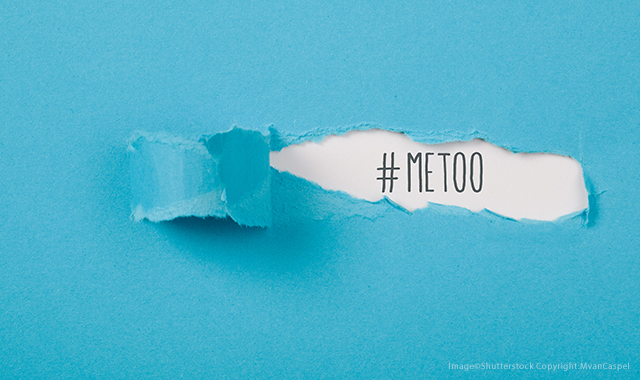How to handle sexual harassment in the dental practice
In the wake of the #MeToo movement, it's important to remind women, including those in the dental industry, that they're not alone.

After receiving a very thought-provoking email, I was inspired to write this open letter.
The writer read my article on #MeToo published in January. She spoke eloquently about how she didn't want any other woman to go through what she had gone through. I want to be her voice for others who are dealing with these issues in the workplace. And my message is simple - you aren’t alone!
My article was about how we shouldn’t judge women who have been victims of sexual assault or harassment in the workplace. Whatever decisions they made shouldn’t be judged. There’s no place in the #MeToo movement for looking down at someone because of the choices she made. Instead, we need to be there for each other.
Related reading: Why you need to support your co-workers
No one knows what you’ve gone through. I know that whatever the experience was, it doesn’t define who you are. My recommendation is for you to talk with a counselor or social worker. When women are traumatized from being harassed, assaulted or raped, it takes a long time to heal. Trauma causes nightmares, flashbacks, decreases sexual interest and causes problems trusting others. A counselor can help you to process what has happened and support you in what to do next.
Some women choose to confront their abuser, call the police, or file charges with a professional dental association. However, some don’t. No one can make that decision for you. But before you think along those lines, you need to talk to someone who can help you on this journey. Why? Because there can be consequences for coming forward. Sometimes when you live in a small community, being a whistleblower can impact your ability to find a job. In some cases, women lose their jobs when their bosses find out about it. They aren’t outright fired, but somehow a paper trail can help you out the door. I’m not trying to discourage you from the journey you’re on; I just want to make sure that you explore how coming forward may impact your life.

If you haven’t shared your story with your family, I encourage you to seek out that support. (I define family as family of choice. It isn’t necessarily your family of origin or family of procreation. Instead, it’s the people who are closest to you.) You need support while going through this process. If you’re not comfortable talking to a counselor, then consider a rabbi, priest or spiritual adviser. If not that, then call a rape crisis hotline in your area. I don’t know your story, but a hotline can help guide you if you wish to talk anonymously on the phone. Perhaps journal and write your story down whether you share it with anyone or not, which may also help.
Make sure to not share any of these issues on a work email. Not to sound paranoid, but you don’t want your new boss to be aware of this having happened. That is unless you want to share it with him/her, which is up to you. It’s important to realize that you’re the person in control. You get to decide how you want to handle this. And most importantly, you’re not alone.
Readers, ask yourself what you would do if your colleague tells you she was assaulted by a dentist or a colleague? Being a believer of how good people are, I like to think that everyone would be supportive. Unfortunately, not everyone is like that. There are people who just can’t believe that it’s true. They feel that the alleged perpetrator is being framed because they’ve always been so wonderful to them. There are co-workers who get nervous that if you press charges, they’ll be out of work. (I know that sounds cold, but it does exist.) People are afraid to get involved or come forward. Human nature is very complex. Sometimes we must push through our limitations and just be there to listen. That is how you can be supportive of your colleague.
More from the author: Do you know how to communicate effectively?
In my experience as a social worker, I have yet to find someone who made up an assault or harassment charge. I’m not naïve; I just haven’t found that person. It really does take a village. In so many ways, we think we’re alone and that no one can understand what we’re going through. But if people open up and share what life experiences they have, then it helps inspire us and provides comfort that we’re not alone.
Make the choice to believe women when they share these stories. It takes tremendous guts to stand up and speak out. Don’t allow your fears to impede a woman who stands up. You are not alone. We are not alone. We’re taking control of our lives and moving forward. We are survivors!
If you’ve experienced harassment, stalking or sexual assault in a dental practice, email me at diana2@discussdirectives.com. I would like to hear your story.